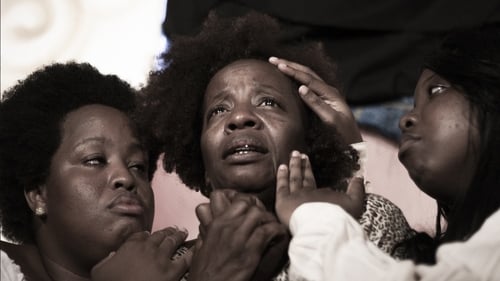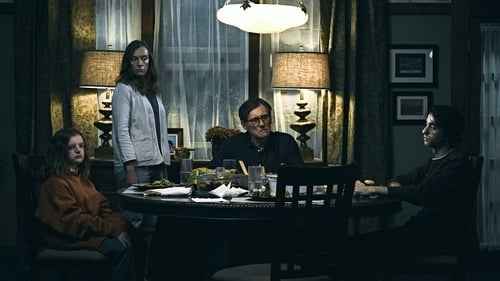ELEGGUA (2018)
ALL PATHS ARE OPEN.
장르 : 드라마
상영시간 : 26분
연출 : yuri costa
시놉시스
mariana, a young black woman is recovering from a heavy depression. she just wants to be happy, but hasn’t found her way yet.

after years abroad due to his brother's murder, a renowned journalist returns to his family's home to take care of his mother, who suffers from an unknown illness. late at night, he is visited by two strangers. as new events unfold leading him to suspect that something ominous and deeply disturbing has struck his mother, a new tragedy rises.

애니는 일주일 전 돌아가신 엄마의 유령이 집에 나타나는 것을 느낀다. 애니가 엄마와 닮았다며 접근한 수상한 이웃 조안을 통해 엄마의 비밀을 발견하고, 자신이 엄마와 똑같은 일을 저질렀음을 알게 된다. 그리고 마침내 애니의 엄마로부터 시작돼 아들 피터와 딸 찰리에게까지 이어진 저주의 실체가 정체를 드러내는데…

Prior his first exhibition, Leo tries to find the best to way to express both his art and himself.

Yeda, the green-faced woman, sells homemade bread to support the house where she lives with her sick husband. Through the context of green-faced people, we know the reality of those who live on the fringes of a purple-faced society.

Part documentary, part drama, this film presents the life and work of Jack Kerouac, an American writer with Québec roots who became one of the most important spokesmen for his generation. Intercut with archival footage, photographs and interviews, this film takes apart the heroic myth and even returns to the childhood of the author whose life and work contributed greatly to the cultural, sexual and social revolution of the 1960s.

A young Los Angeles cinephile falls in love with a woman but has that love tested by the all-seeing eye of the Internet.

A look at the Brazilian black movement between 1977 and 1988, going by the relationship between Brazil and Afrika.

'Black girls don't play with black dolls', says the lyrics of Preta Rara's rap, one of the characters in It Looks Like Me. The documentary explores the lack of black dolls in the Brazilian market and shows the work of the artisans who try to change this scenario facing the gigantic toy industry with their handmade dolls.

Festive Land examines one of the largest and most extraordinary popular celebrations in the world, the week-long Carnival that brings more than two million people to the streets of Salvador, the capital of Bahia, in northeastern Brazil. Carnival is the most expressive showcase of the unique cultural richness of Bahia, where African culture has survived, prospered, and evolved, mixing with other Brazilian influences to create forms found nowhere else in the world. The film captures this unique cultural energy through extraordinary footage of musical performances, dances, religious manifestations, and street celebrations. At the same time, Carnival reflects the racial and social tensions of Brazil's heterogeneous society. At first glance there appear to be two million people chaotically mixed on the streets, but a more detailed look reveals how patterns of segregation driven by racial, social and economic differences continue in Carnival.

Two down on their luck cousins are forced to come up with a plan to make some cold hard cash when they lose the rent money after a night of partying with two strippers.

Alice is in a dimension known as Maravilhas - which is already in a post-apocalyptic period and the protagonist is looking for her beloved Glenda. During her search she allies herself with an old love of the two - Hatter - to face the Cult of Hearts.

The Other Side of the Atlantic is a documentary that builts a bridge in the ocean that separates Brazil and Africa. The film tackles the cultural exchanges, the imaginary created through the mirroring, the prejudice and dreams built in both sides of the atlantic through the life stories of the students of african countries in transit through Brazil.

Self-directed visual for Luedji Luna's new studio album. It verses about love and affection of black women.

The film tells the story of a generous, engaged and provided woman who, with the help of other teachers, focuses on culture, art and the appreciation of black beauty, accompanying young Afro-descendant teenagers from Trancoso in the reconquest and value of their cultural identity.













